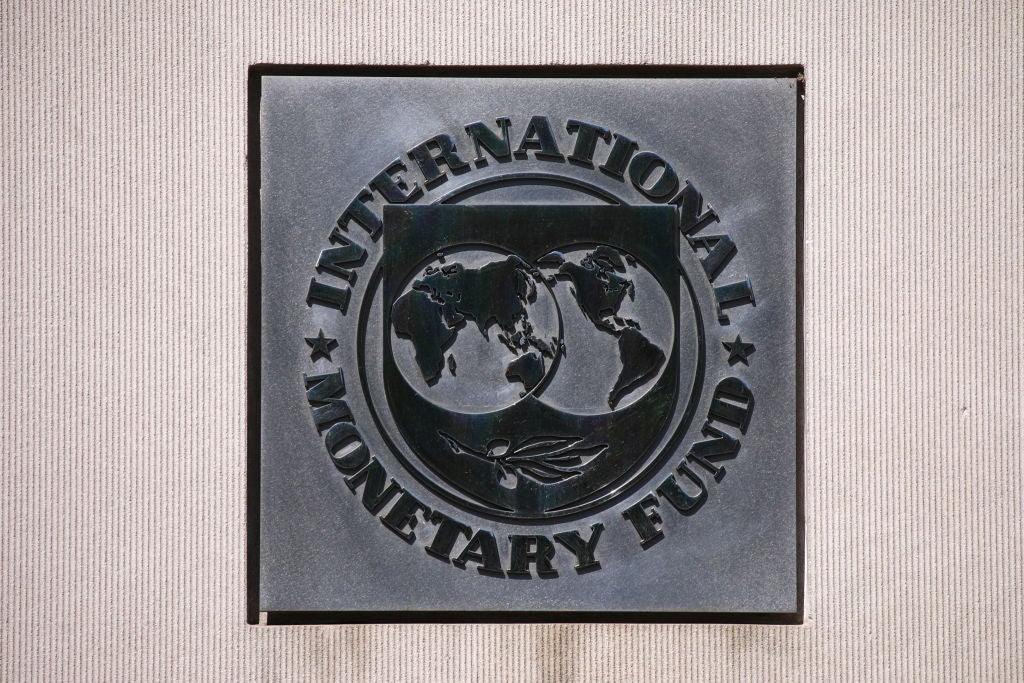KABUL, Afghanistan (AP) — When the Taliban took power, they saw Afghanistan’s economy rapidly approaching the brink and faced heartbreaking predictions of growing poverty and hunger. So they ordered the chief financial officers of the collapsed former government back to work, with an urgent directive: do your job, because we can’t.
In the 20 years since the last rule of the Taliban, Afghanistan has transformed from an economy driven primarily by illicit businesses to a sophisticated multi-billion dollar system fueled by donor aid and trade. international. The Taliban, a movement stemming from the rural clergy, is struggling to grasp the extent of the transformation.
Four employees of financial institutions told The Associated Press how the Taliban had ordered bureaucrats from the previous government’s finance ministry, central bank and other public banks back to work. Their accounts were confirmed by three Taliban officials.
“They told us: ‘We are not experts, you know what is best for the country, how we can survive in the face of these challenges'”, recalls an official of a state bank, who, as others, spoke on condition of anonymity because he was not authorized to speak publicly.
They told him: “Do what you must”, but warned him: “God is watching you, and you will be responsible for what you do on the day of judgment”.
Silently, these technocrats advise the Taliban leaders in the management of the crippled financial sector. They tell them what to do and how to do it. But, as seasoned experts, they see no way out of Afghanistan’s economic quagmire: With billions in frozen international funds, the best they can muster in domestic revenue is $500-700 million. , which is not enough to pay public salaries or provide basic goods and services. .
The Taliban are strengthening relationships with local businessmen to keep them in business, while leaders are pushing for international recognition in meetings with foreign officials.
The Taliban’s takeover in mid-August led to an abrupt halt in most donor funds. These disbursements represented 45% of GDP and financed 75% of government expenditure, including public sector salaries. In 2019, total government spending was nearly $11 billion.
With the drought also underway, the United Nations predicts that 95% of the population will suffer from hunger and that 97% of the country is at risk of falling below the poverty line.
The United States has frozen billions of dollars in reserves under international sanctions against the Taliban, eroding central bank and commercial bank liquidity and limiting their ability to transact internationally.
This has undermined international trade, a mainstay of the Afghan economy. Intermediary banks abroad are reluctant to engage in transactions due to the risk of sanctions. Informal trade continues, however. The International Monetary Fund predicts a sharp contraction in the economy.
At the Ministry of Finance and the central bank, almost daily meetings revolve around the purchase of basic foodstuffs such as flour to fight against hunger, the centralization of customs collections and the search for sources of income in a context critical shortage of household items. In Afghanistan, all fuel oil, 80% of electricity and up to 40% of wheat are imported.
The frustrations of technocrats are numerous.
Never mind the dollars, there is not enough local currency, the Afghani, in circulation, they said. They accuse the previous government of not printing enough before Kabul fell in August.
Hallways once bustling with employees are quiet. Some ministry employees only show up once or twice a week; no one received a salary. A donor relations department once had 250 members and dealt with up to 40 countries; it now has at best 50 employees, and a single interlocutor: the United Nations.
There are no women.
Many are growing increasingly infuriated with the Taliban leadership.
“They don’t understand the magnitude,” a ministry official said. “We had a $9 billion economy in circulation, now we have less than $1 billion.”
But he was quick to excuse them. “Why would I expect them to understand international monetary policy? They are guerrilla fighters at heart.
Returning government workers said the Taliban appeared sincere in their desire to root out corruption and provide transparency.
We don’t tell them everything. A well-kept secret of the Taliban is the amount of money left in state coffers. Ministry and bank officials estimate that could be as little as $160 million to $350 million.
“They are very sincere about the country, they want to boost morale and create friendly relations with neighboring countries,” said another bank official. “But they don’t have expertise in banking or financial matters. That’s why they demanded that we come back and do our job honestly.
Mawlawi Abdul Jabbar, an adviser to the Taliban government, said the returning experts are “with the government. And they are working on financial issues to resolve these issues.
The Taliban are strengthening their relations with businessmen who trade in essential goods with neighboring countries.
An active proponent of establishing trade relations is Taliban adviser Abdul-Hameed Hamasi. He was recently warmly welcomed at the wedding of the son of prominent businessman Baz Mohammed Ghairat.
Ghairat factories process everything from cooking oil to wheat. Hamasi said the Taliban provided him with security, including permission to drive in armored vehicles, so his relationship could continue.
But central bank limits on withdrawals are Ghairat’s main concern. Without access to deposits, it cannot pay traders, he said.
Economic woes preceded the rise of the Taliban. Corruption and mismanagement were endemic in the former government.
During the first months of 2021, economic growth slowed and inflation accelerated. The drought undermined agricultural production as fuel and food prices soared.
The Taliban’s capture of border crossings and transit centers before the fall of Kabul has exacerbated matters.
Government officials, teachers and civil servants had not received a salary for two to three months before the government collapsed. Many have sold household goods or racked up debt with neighbors and relatives to make ends meet.
Sayed Miraza, an employee of the Ministry of Agriculture, arrived at the bank at 4 a.m. on a Saturday morning. People had already lined up to access their weekly withdrawal limit of 20,000 Afghanis, or $200.
Miraza’s account is empty. He came to pick up a Western Union transfer from a nephew in the United States. “We ran out of food so we had to ask for help,” he said. At 9 a.m., he was still waiting.
At a Kabul flea market, Hematullah Midanwal sells the items of cash-strapped people.
“They sometimes come with their entire living rooms, it all comes down to spoons,” he said.
Many hope to leave Afghanistan. Given the chance, the technocrats who manage the country’s finances would also leave, said all those interviewed by the AP.
A central bank official said he was waiting for his asylum papers to travel to a Western country. “If it comes, I will definitely leave. I would never work with the Taliban again.











